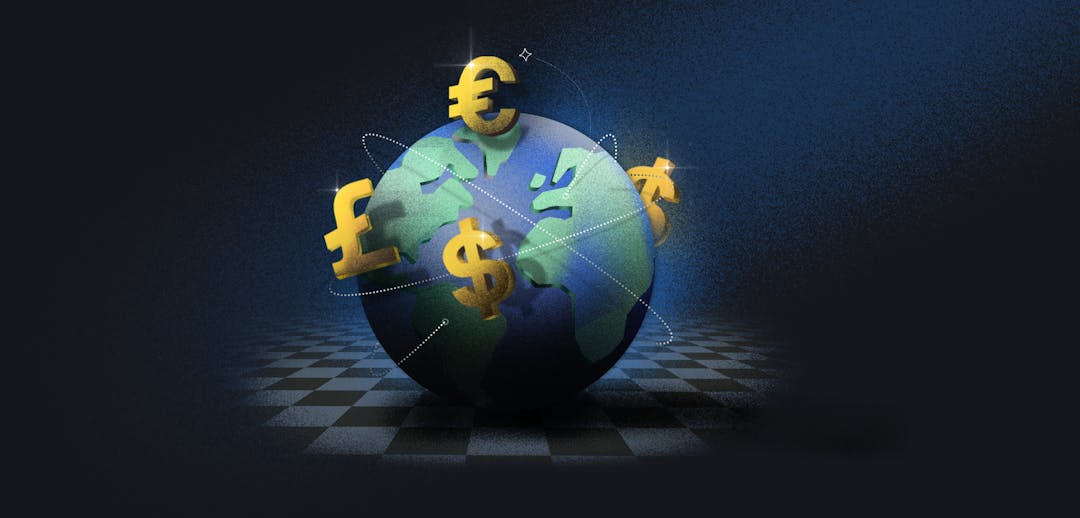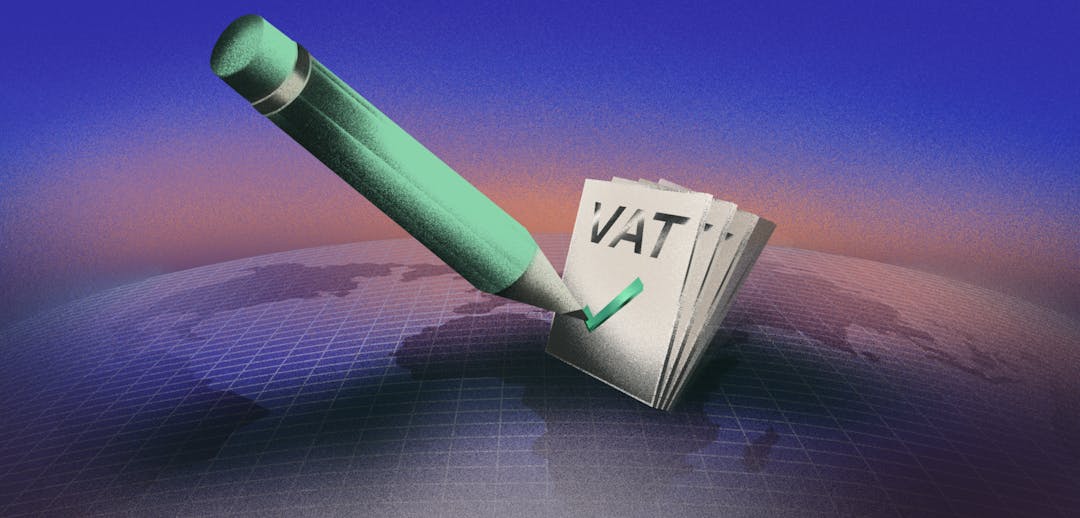Beginning January 2024, if you’re a US software business selling into Europe, you’ll need to reevaluate your stance on EU VAT collection. Find out what's changing, all about CESOP, and how you can get out-of-the-box compliance right from the start.
Move fast and break things. That’s often the mantra of small software companies, particularly when it comes to issues such as sales tax compliance. No one starts a software company dreaming of HR issues, office politics, or remitting sales tax in a foreign country.
Beginning in January 2024, if you’re a US software business selling into Europe, it's the end of VAT non-compliance in the EU. You’ll need to reevaluate your stance on EU VAT collection or you will be more vulnerable to fines from the tax authorities.
Let's take a closer look at the upcoming changes, their implications for U.S.-based businesses, and most importantly – how to get out-of-the-box compliance right from the start.
What’s changing in the EU VAT world?
European Union value-added tax or VAT is a tax on goods and services within the European Union. That means if you are a US business selling digital goods to European customers, you have to charge local VAT based on their locations, not yours.
As of January 2024, Payment Service Providers (PSPs) have a new role in tackling VAT fraud. They need to report cross border payments to CESOP (the Central Electronic System of Payment Information), a large digital hub. This disclosure is specifically for the purpose of combating tax fraud. It’s focused on business activity, doesn’t record payment reasons, and has strong privacy restrictions.
“But I don’t have many customers in Europe,” we hear you say. Well, the sales volume before you incur liability is a lot lower than what you might be used to in the US. In fact, there is no minimum sales threshold that applies for an inbound US seller, you need to handle VAT from the very first taxable transaction.
With the changes coming into effect next month, if you are making more than 25 sales per quarter in Europe, it will get logged by your payment processor.
What does that mean for your finance operations?
If you are selling software in Europe using a PSP and you aren’t calculating, filing and remitting the right sales tax, you are much more likely to get a letter from the authorities. Getting this sorted immediately will limit the disclosure of your non-compliance post January 1st 2024. The option to ignore the problem, which has seemed the easy option, will no longer be a viable one.
You will need to register VAT through the VAT One-Stop-Shop (OSS) union scheme or in each country where you’re supplying goods
Most PSPs automatically calculate sales tax rates on your transactions, but you remain liable and still need to file and remit your own taxes. This can be a real headache for finance teams, especially if you don’t have the expertise or resources in this area.
Dealing with different VAT rates in the EU and the administrative work involved in tax filing can make it tough to stay on track with your obligations or automate the processes. Tax rules keep changing, which means more ongoing paperwork.
Feeling overwhelmed yet?
How can you solve your VAT headaches?
Putting tools in place can save additional headcount costs, and reduce your risk of being hit with expensive non-compliance penalties.
The first option is to layer on sales tax software to help you understand how much sales tax you owe by automating the calculation process. Some software can help you with tax registration, calculation, submitting returns and remittance. But the liability will still fall to you should you make an error.
The second option will help you avoid the penalties for non-compliance as well as the administrative altogether: You can hand off your tax and compliance to a merchant of record (MoR). The MoR acts as a go-between for you and your customers, handling and taking responsibility for any sales tax issues. This not only saves you hours of manual work but also eliminates the risk.
How can Paddle help you with your EU VAT?
If you are using Paddle as your MoR, your VAT is already done for you. Out-of-the-box global compliance, from day one. It’s our responsibility to register, charge and remit sales tax for you. The correct sales tax is automatically applied to every payment through our billing platform.
You can relax knowing that you'll always meet the EU VAT regulations, not just for the changes coming on January 1, 2024, but for any future updates as well. Paddle's got you covered with automatic registration, filing, and payments across all regions, so you can rest easy knowing your compliance is in good hands.
What if I want to sell in other countries across the globe?
Paddle equips you with the ability to experiment and respond quickly to new growth opportunities across the globe, crucial in today’s slow-growth environment.
We know software growth has slowed down in North America and the UK. However, in other regions like Continental Europe, India, and even Australia, we're witnessing smaller but rapidly expanding groups of SaaS companies.
By partnering with us, you’ll offload the sales tax complexities of international expansion. Paddle has registrations in over 100 jurisdictions, so you can confidently step into new markets, explore, experiment, and grow without the burden of tax complexities holding you back.
Want to learn more? You can have a chat about sales tax specifics with our tax experts here.




